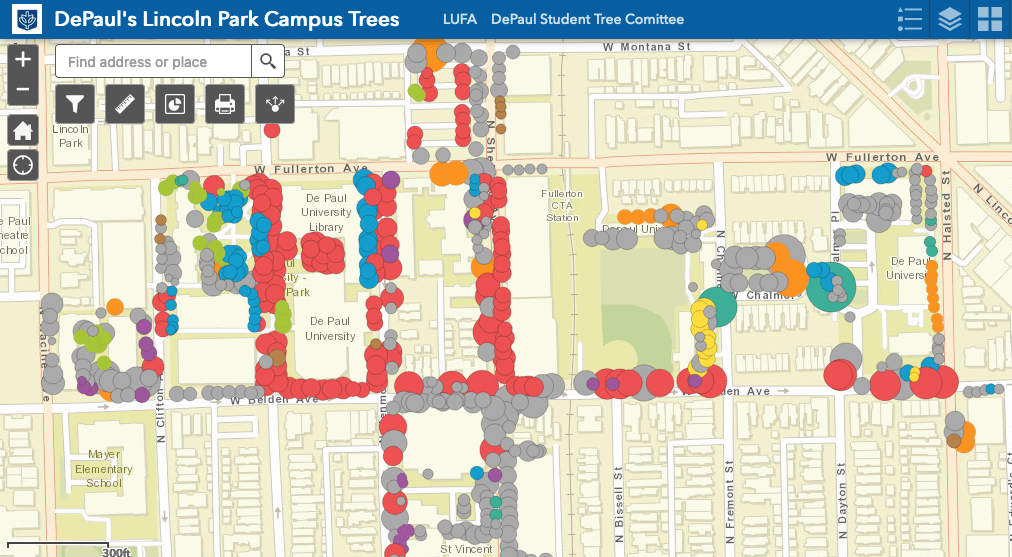Our Campus
At DePaul, we are working every day to achieve more sustainability at both our Lincoln Park and our Loop campuses. Since the early 2000s, we have updated our facilities and operations to make these more sustainable. We have also prioritized sustainability in our new construction projects.
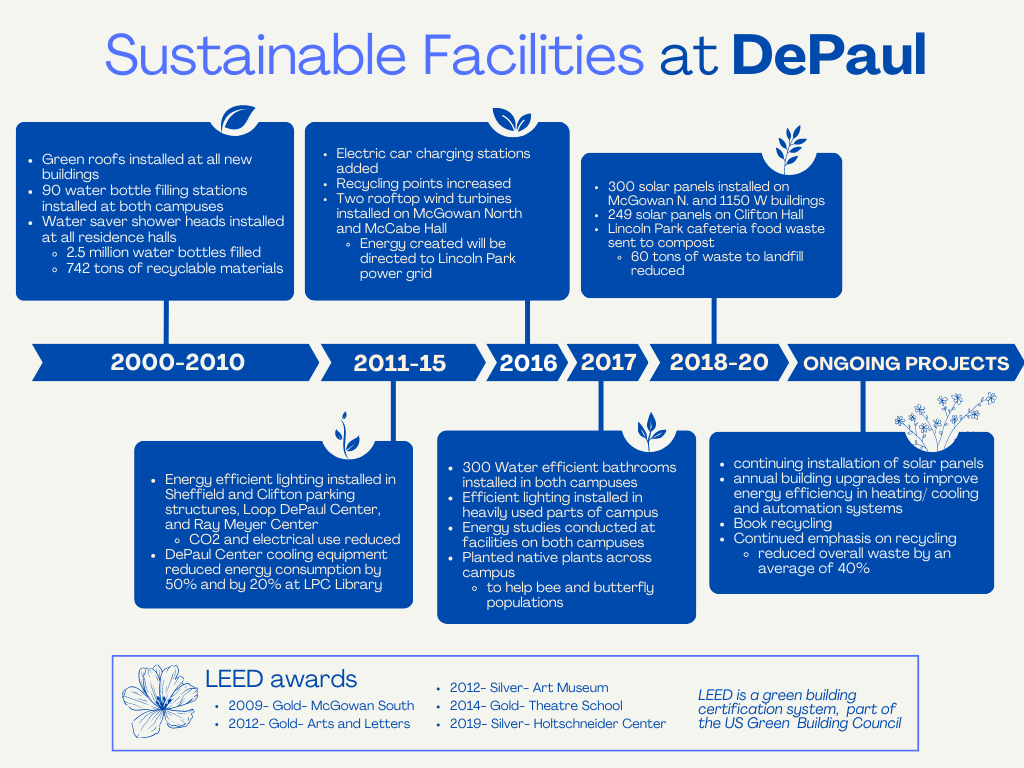
Tracking Our Commitments
We have taken our sustainability efforts further in order to help DePaul become a greener campus.
The DePaul Sustainability Initiatives Task Force recommended five key priorities for a more sustainable campus. Here’s how we’re doing on each of these priorities.
View the DePaul Sustainability plan.
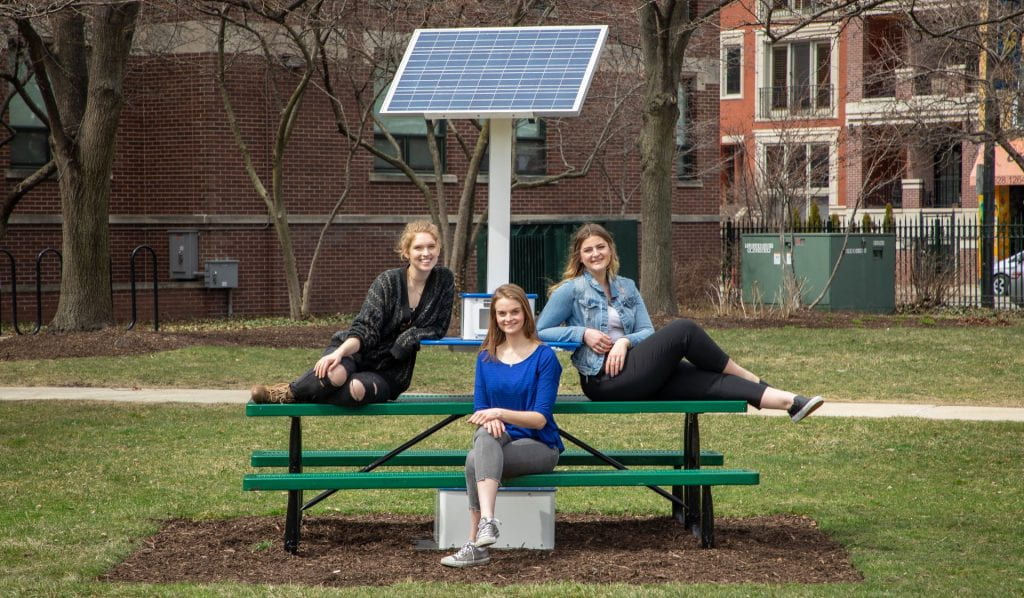
Saving Energy
We are investing in energy-efficient and environmentally conscious buildings that meet LEED (Leadership in Energy and Environmental Design) standards for sustainable buildings. Our newest construction projects, such as Arts and Letters Hall, are LEED-certified.
Students such as Sydney Coyle, Katy Bozich, and Anna Pierce (pictured here) worked to have solar panel charging stations installed in LPC and Loop campus.
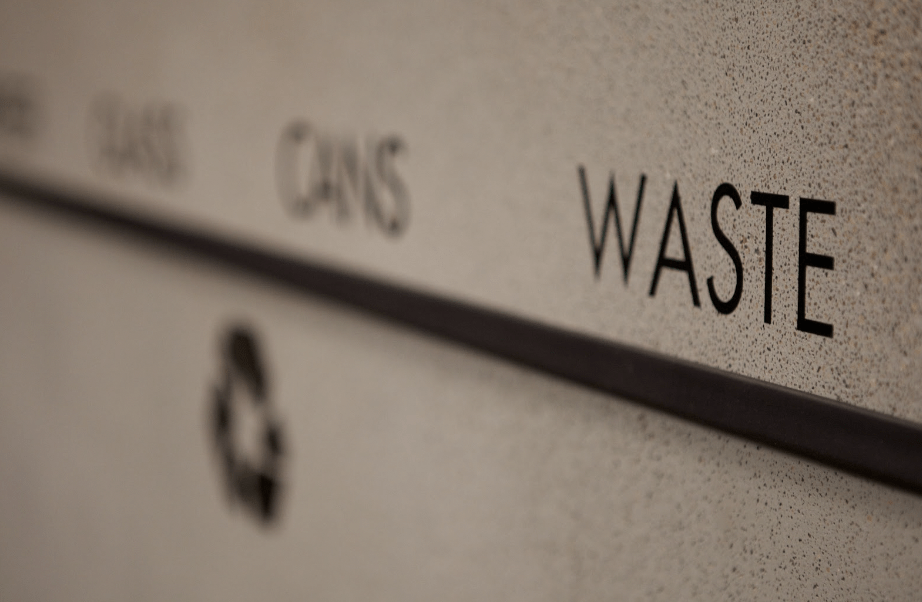
Reducing Waste
Waste not! We are improving our recycling efforts all around campus. By figuring out how to keep construction and demolition debris out of landfill, managing the growing flow of electronic waste, and buying products that contain recycled materials we are making positive changes to DePaul.
Our average landfill diversion rate is over 46 percent, meaning nearly half of DePaul’s waste is diverted out of the landfill by recycling, composting, and repurposing.
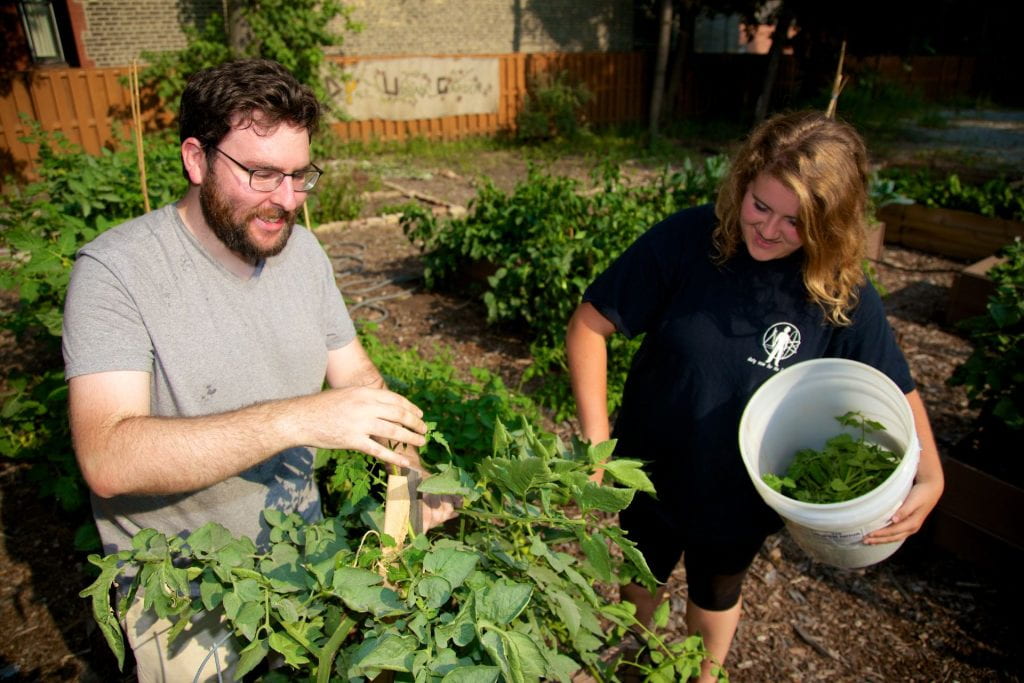
Eating Well
Wherever we can, we are working with local organic, fair trade, and sustainably harvested food vendors. These practices also support local economies and promote safety and living wages for workers.
Our students also lead clubs such as DePaul Urban Gardeners, where you can jump into the world of urban agriculture and local food systems. They host events such as “Urban Gardening & Vincentian Sustainability” to help learn about the intersection between sustainability and the Vincentian mission.
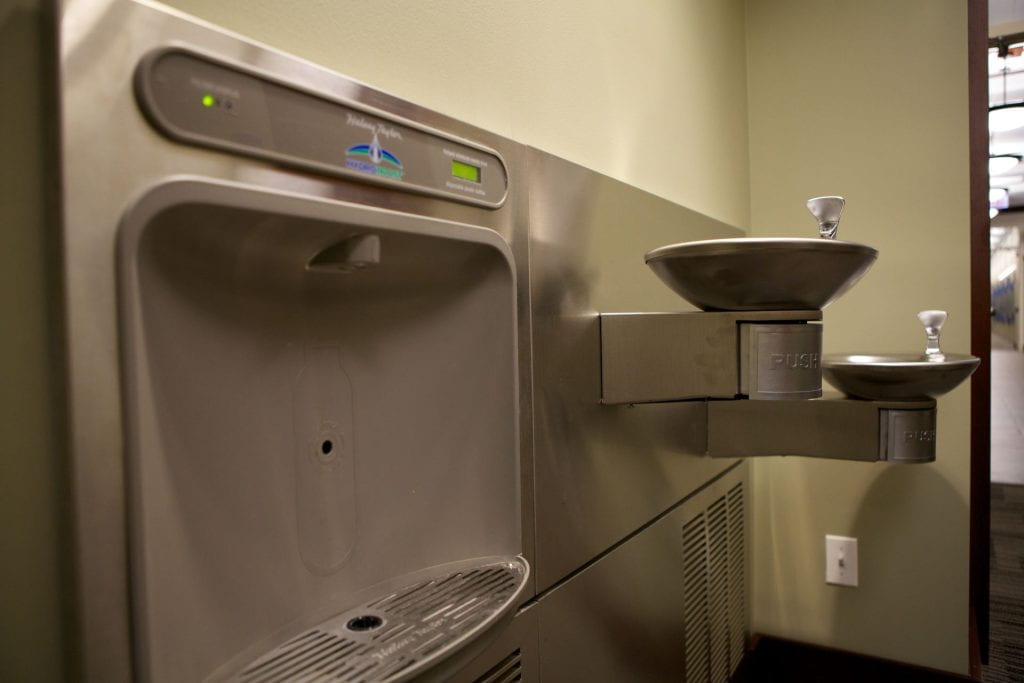
Conserving Water
We are blessed by the bounty of Lake Michigan but we can’t take clean water for granted. DePaul has installed over 90 water bottle refill stations at key locations across Loop and LPC, as well as water saver shower heads, ENERGY STAR-rated washing machines, and water-saving plumbing fixtures in an effort to reduce water waste. The average annual number of water refills across the two campuses is 2.5 million.
Managing and trapping stormwater run-off also allows us to reuse that water for irrigation and other commercial uses. We are also reducing our irrigation schedules and planting drought-resistant landscaping to diminish the amount of water we use.
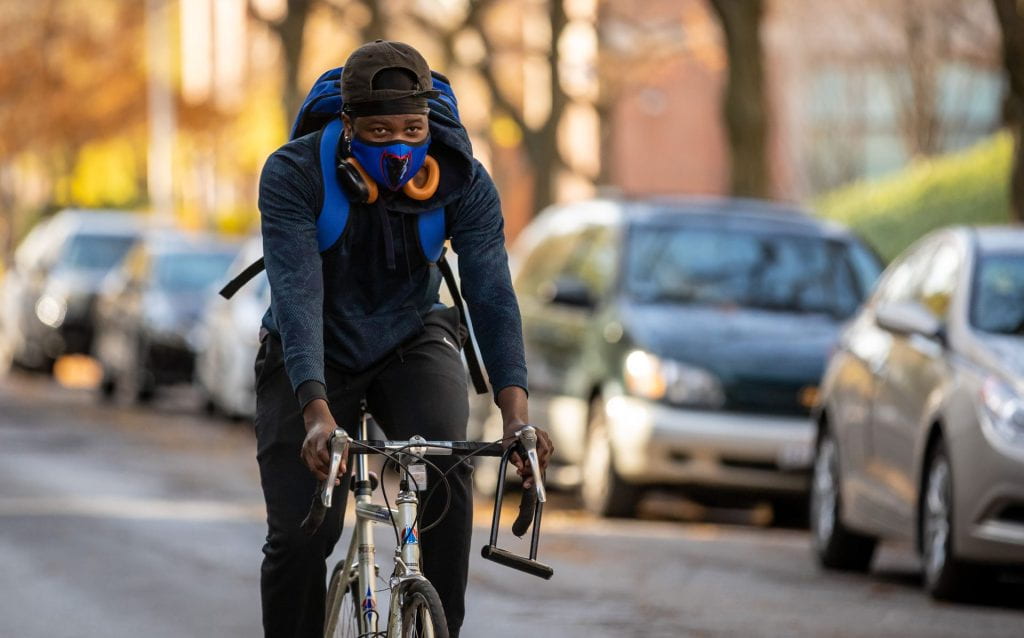
Moving Intentionally
Driving is in our culture and it takes real intention to change our transportation practices. We are investing in more fuel-efficient vehicles for Public Safety, maintenance operations, and other departments.
We have expanded our car-sharing program on campus, have a U-Pass available to take public transport, and are growing our campus bike plan by promoting Divvy Bikes, adding more secure bike parking, and changing/locker facilities.
Do You Know DePaul Has Been Recognized as a ‘Tree Campus USA’?
In both 2018 and 2020, DePaul was recognized by the Arbor Day Foundation as a Tree Campus USA. This recognition honors universities for their commitment to urban forestry management.
The work of student Rasa Whittaker (BA Environmental Science and Geography, 2017) in Prof. Jess Vogt’s Urban Forestry class to digitize an inventory of the trees on DePaul’s Lincoln Park campus was key to DePaul’s receiving this prestigious award.
